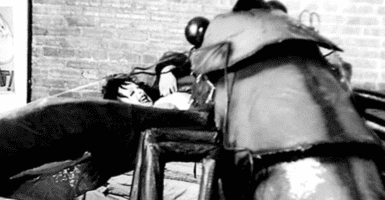Claims Against Gene-Altered Corn Widely Assumed To Be False
This article is more than 2 years old

When poring over the vast amount of the Internet’s science-based columns in researching my articles for this site, I must admit I put an unearned amount of trust into the subject matter of each story, reading without the grain of salt I hold for tabloid stories. Well, not every story is going to be 100% true 100% of the time.
More than 700 scientists have come together via an online petition to call for University of Caen researcher Gilles-Eric Seralini to disclose all of his research used in for a paper published in the journal Food and Chemical Toxicology. Criticized by agricultural group Rothamsted Research head Maurice Moloney for being “seriously deficient in its design, its execution and its conclusions,” the paper suggests that genetically engineered corn produced by the St. Louis company Monsanto was responsible for multiple organ failure and the the development of tumors inside rodents. In case you quickly judge the harshness of Moloney’s words, written to the journal’s editor, not only did the European Food Safety Authority also call the study defective, but six other European Union experts had similar views, saying nothing valid could be drawn from Seralini’s conclusions.
It’s probably a good time to insert my bias for the sweet, sweet complement to any meal that is corn. As far as the gene modification goes, I don’t know if every possible test that exists has been done to extinguish all risks from its consumption, but I trust that all of the ones they’ve completed thus far that haven’t raised any warning flags. But I’ve been wrong before.
In his defense, Seralini called it the most detailed study on the topic ever completed. Reed Elsevier, the Food and Chemical Toxicology publisher, said in a public statement that the paper had been “objectively and anonymously peer reviewed” and stated the authors made “a series of revisions” and only then was the “corrected paper then accepted by the editor.”
Thank goodness this is science, and not a court of law, because things can be replicated in science. It just takes a while to get those results. Just like in a court of law.












